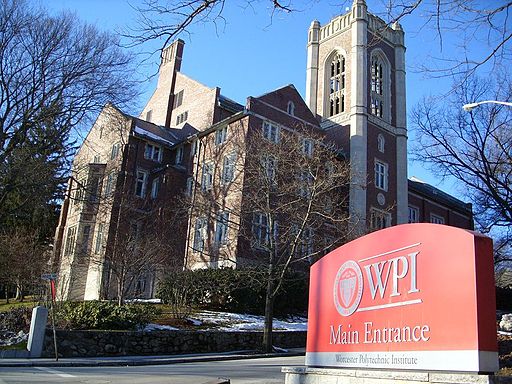
April 2, 2017; Boston Globe
When nonprofits are offered large gifts, the typical protocol is to gratefully accept the donation, thank the donor (repeatedly!), and acknowledge the gift in a more public manner, such as naming a conference room after them. While development staff do do some research into the gift, particularly those from new donors who may have unexpectedly donated a large gift, given the harried schedules of development staff, they are forced to move quickly on to finding the next big gift.
Worcester Polytechnic Institute (WPI) more or less followed this protocol when Robert Foisie offered the university a whopping $40 million gift. They gladly accepted the largest gift in the school’s history and named The Foisie Innovation Studio in his honor. Unfortunately for WPI, since the gift was received, the Foisie family has been caught up in a bizarre legal struggle, with WPI caught right in the middle.
As reported previously by NPQ, the issue began when Janet Foisie, Robert’s ex-wife, claimed that $4.5 million of Robert’s gift to WPI technically belonged to her. Robert allegedly hid money in overseas accounts, so during their divorce settlement, she did not have access to these funds. Janet claims Robert later transferred money from a Swiss account to WPI. The university was largely able to steer clear of the drama by acknowledging both Robert and Janet Foisie as donors.
Sign up for our free newsletters
Subscribe to NPQ's newsletters to have our top stories delivered directly to your inbox.
By signing up, you agree to our privacy policy and terms of use, and to receive messages from NPQ and our partners.
As the story has been unfolding very publicly, more shocking allegations have been brought against Robert, most recently that he hired a hit man to kill his own son and is being investigated by the FBI for wire fraud. Although these allegations have not been substantiated, the very public nature of the scandal hangs a cloud over those affiliated with Robert Foisie, particularly WPI, where Foisie’s name was celebrated as the largest donor to the institute. Still, WPI has opted to stay out of the line of fire. In a public letter, WPI president Laurie Leshin said, “We don’t know whether any of the allegations are true or false, but I want to assure you that we are taking the situation seriously…We are following this closely and will take action, if necessary, to ensure that we are aligned with best practices.”
It’s a story NPQ has seen on several occasions (like here and here), and as such has published a guide on how nonprofit organizations can deal with so-called “tainted” donors. The guide describes three possible actions that nonprofit organizations can take when donors become scandalized. When there is little outside pressure to address the donation, nonprofit organizations can engage in defiance, keeping the gift and continuing to acknowledge the donor; that’s where WPI is right now. With more pressure, nonprofits can move to compromise, in which they keep the money but publicly distance themselves from the donor. The last step would be acquiescence. With enough pressure, such as other donors refusing to support the organization, nonprofits can essentially be forced to return the gift and remove public acknowledgement of the donor.
As the lawsuits play out, WPI will need to follow them very closely and determine which of these strategic actions is in the best interest of the university both monetarily and in terms of setting precedent for future tainted donors, should more come around. WPI may need to set more policies in place, such as protocol for when WPI will opt not to accept a gift, no matter how large it may be.—Sheela Nimishakavi













